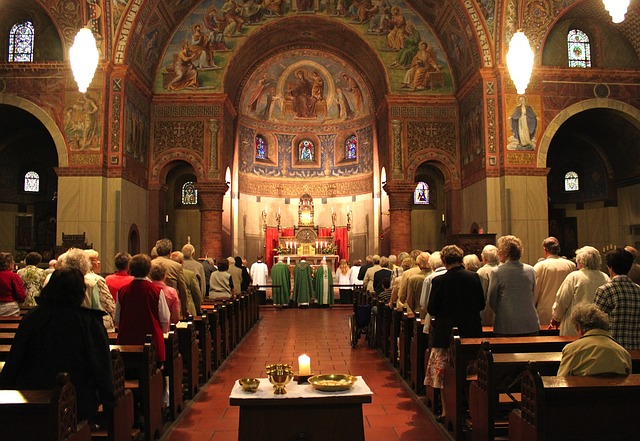Authenticity can be difficult to come by, even in the church community. Go figure. People prefer to hide the awful mess going on inside their lives, choosing to maintain some shred of perceived dignity rather than revealing the sober truth. The meager attempts we make at propping up an image of success is much more appealing than spilling the beans about the troubled marriage, the crippling anxiety, or the poor performance at work. But the stark truth is that all of us are struggling with something. People may be good at hiding it, but like my mom always says: “Everyone Has Problems.”
I have grown to appreciate more the people who are not afraid to be transparent, raw, authentic and realistic about the challenges and disappointments they are experiencing. It makes me want to be real and transparent with them, too. I don’t know how else anyone can expect to develop real relationships with others unless they do this.
My wife, Beth, and I lived in the Boston area for many years before moving to the Philadelphia suburbs. For some reason, that particular part of the country is well-known for its hard-crusted natives. I would venture to say, twenty years later, that our choice of settling into the frigid culture of the New England area for so long is partly responsible for hardening us up a bit.
I’ve tried to determine why New England is so difficult, why it is different from other parts of the country. I have some ideas on this. First of all it’s really expensive to buy a house there, so you’d better be prepared to lay down some serious coin, even if you have ratcheted down your expectations so that you would be satisfied with just a simple little shack to live in. The financial pressures alone can make even good Christians get a little testy and askance with their brethren, especially when you are invited to a bible study at another church-goer’s home from your “Young-Married’s” fellowship group who has somehow managed to acquire a rather large and well-appointed house and yard in one of the area’s best school districts while you are still scratching together a meager savings from your pathetic paycheck to reach your five-year goal for a down-payment on a tiny ranch in a rural area that will add 45 minutes to your commute (me at age 28).
So this is another problem too, for young people living in the Boston area: everyone else seems to come from a higher grade of breeding, and is generally smarter, more affluent, and better educated than you. The flow of elite pedigree drips like Chinese Water Torture on to the trailer-park skulls of the rest of us with lesser lineage. While it used to be a source of great pride for me while growing up in a small-town in upstate New York, my family’s claim of us being “a step above white trash” now made me feel self-conscious and embarrassed around these folks. It was hard not to compare myself. As greatly inferior.
Another thing that makes New England difficult is that the weather gets really harsh and brutally cold in the winter, and it lasts a long time, like from late October to mid April. Which is okay, but the snow and frigid wind gets tiresome by mid-April, especially if you’re not used to it.
And the last thing is that people can be a little stuffy. I say that in a very nice way, because I lived there for a long time and met some very nice people and made some good friends (eventually). But generally speaking, folks pretty much want to keep a distance at first. I think the social culture tends to be a reflection of the weather conditions and its enduring affects on the natives, dating back from centuries of an agricultural-based lifestyle. Their puritan ancestors were always prepared for the worst: the soil is always frozen, and when it’s not, it’s very rocky and shallow and difficult to grow anything in. And then they’ve only got three good months for raising crops, the rest of the year they’ve got to hoard and store their food and worry about making it last all winter long. People have gotten used to these harsh conditions since the colonial days, and for generations they’ve been brought up to be very careful and prudent. They’ve seen enough, they’ll tell you, and they know that life is just not going be easy or fun most of the time, so they’re not too bubbly and chipper and wanting to be your best friend the moment they meet you. They’re more likely to be suspicious, aloof, and unsympathetic.
New England can be an especially tough place to live, or to move to, if you’re from somewhere else. In church, for instance, whenever we met new couples who had relocated from the South or Midwest, Beth and I would listen attentively to their innocent, eager chatter about how excited they were to be here, what a great church this was, how terrific were the prospects of living in the Boston area with the history, the culture, the ocean, etc. All the while Beth and I exchange these secret, knowing glances and imperceptible sneers. “Good luck, suckers.” That’s what we’re thinking. We knew that their hopeful longings for caring friendships and welcoming neighbors reaching out to them would be dashed to pieces on the rocks of Marblehead Bay. You ain’t in Grand Rapids any more, kids. It’s going to be tough, competitive and cold. Our one neighbor made her husband move the family back West after only nine months. He had a really good job, too, but she couldn’t take it. I suppose we weren’t very friendly to them either, having acculturated so well, so we didn’t exactly help the situation. It usually takes years to make a crack into a true friendship with anyone. This is especially true of the Evangelical churches up there. At least that is my experience.
However, there was one Sunday morning while attending a large non-denominational church in the suburbs of Boston that I had a surprisingly authentic moment with a complete stranger, which utterly shattered this pattern.











